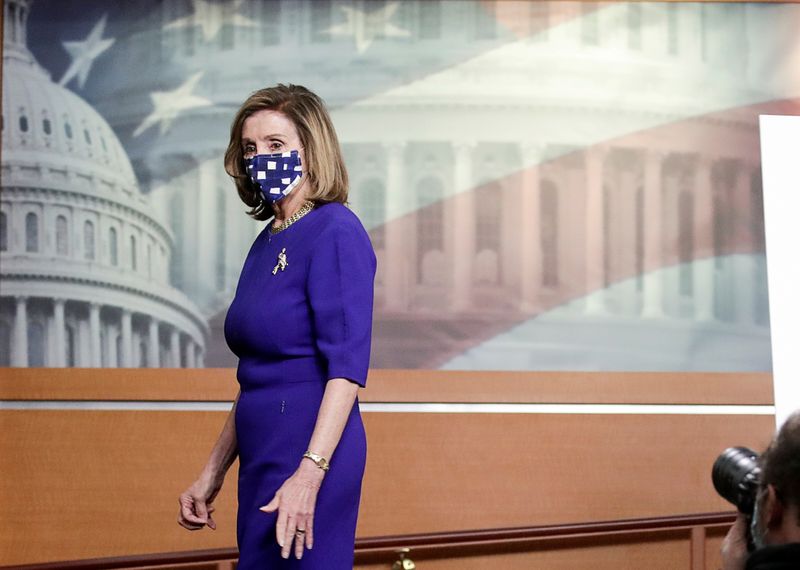By Richard Cowan
WASHINGTON (Reuters) - The U.S. Congress on Monday began a two-week sprint to rescue the federal government from a possible shutdown amid the coronavirus pandemic, the first major test since the election of whether Republicans and Democrats intend to cooperate.
Government funding for nearly all federal agencies expires on Dec. 11. Congressional negotiators have made progress on how to divvy up around $1.4 trillion to be spent by Sept. 30, 2021, the end of the current fiscal year, according to a House of Representatives Democratic aide.
But more granular details are still unresolved and votes by the full House and Senate on a massive funding bill may come close to bumping up against that Dec. 11 deadline.
Still unclear is whether Republican President Donald Trump, who was defeated in the Nov. 3 election, will cooperate with the effort underway in Congress.
If the post-election 'lame duck' session of Congress fails to produce any sort of budget deal, the new Congress convening in January would have to clean up the mess just weeks before the inauguration of Democratic President-elect Joe Biden.
Trump already has warned that he would veto a wide-ranging defense authorization bill Congress aims to pass if a provision is included stripping Confederate leaders' names from military bases.
Failure by the Democratic-controlled House and Republican-controlled Senate to pass a spending bill could have dire consequences. Some healthcare operations could be short-staffed or otherwise interrupted at a time when COVID-19 cases in the United States have been spiking. Nearly 267,000 people have died in the United States as a result of the virus.
The massive spending bill could be the vehicle for providing billions of dollars to state and local governments to help them handle coronavirus vaccines that are on track to be available in coming weeks and months.
Beyond pandemic worries, if government funds were allowed to run out next month, airport operations could slow, national parks would close, some medical research would be put on hold and thousands of other programs would be jeopardized as government workers are furloughed, further hurting the struggling U.S. economy.
Washington suffered record-long partial shutdowns between Dec. 22, 2018 and Jan. 25, 2019, the result of a standoff between Democrats and Trump over funding the U.S.-Mexico border wall that was a centerpiece of his presidency.
This time around, Republicans are seeking $2 billion for the southern barrier that most Democrats and some Republican lawmakers claim is an ineffective remedy to halting illegal immigration.
Negotiators also have been battling over the amount of money Republicans want for immigrant detention beds.
Disagreements over abortion and family planning, education, and environment programs also have been simmering. If they cannot be resolved by Dec. 11, agency shutdowns could be avoided only by Congress passing a stop-gap funding bill.
Also hovering over the budget debate will be warnings that emergency funds must be allocated in separate coronavirus aid legislation following months of deadlock.
Democrats' most recent offer was a wide-ranging $2.2 trillion bill to help state and local governments deal with the health and economic crisis, expand COVID-19 testing and supplies, and renew federal direct payments to individuals and families during the pandemic.
Their goal is to provide a significant shot of stimulus to an economy that many experts fear could take a second dive in coming months if the pandemic shuts down more businesses.
Republicans have deemed that proposal exorbitant and have been sticking with calls for a scaled-down $500 billion menu of initiatives.
So far there have been no signs of serious negotiations, leaving many to believe a stimulus bill will be the first order of business in Biden's presidency, which begins on Jan. 20.
